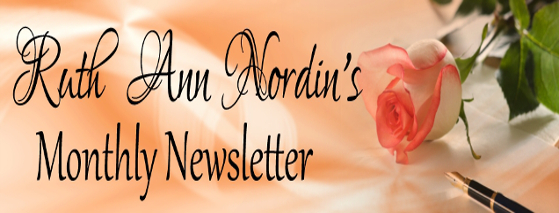A friend tried to explain it to me years ago. She said that this particular trope in romance is popular because women like to think they can be the one to change him.
I thought that was one of the most illogical statements I’d ever heard, and it still makes no sense to me. If a woman were to change the bad boy, then he would be good, and if he was good, wouldn’t she lose interest in him? Then I thought, “Maybe being with a bad boy is like being in a movie where you wonder if he’ll ever commit or not.” (Let’s forget the notion that if he does commit to a woman, he might not stick with it since the bad boy image entails him being “bad”.) But maybe that is the excitement. Will he or won’t he? That’s exciting, I guess, but it doesn’t last longer than the end of the book.
I looked up the definition of a rake (a term I’ve heard a lot from Regency books. This is what I came up with in Google, “In a historical context, a rake (short for rakehell, analogous to “hellraiser”) was a man who was habituated to immoral conduct, particularly womanizing. Often, a rake was also prodigal, wasting his (usually inherited) fortune on gambling, wine, women, and song, and incurring lavish debts in the process.” (source: https://en.wikipedia.org/wiki/Rake_(stock_character))
Exactly what in that description makes a man appealing? He is given to sleeping around. That means he probably has an assortment of STDs. He possibly has children with other women. He does not have any intention of staying with the woman he sleeps with, which means he uses women for his own selfish pleasures. Even if he marries, chances are he won’t be faithful because of his past behavior. The only case I can see where a bad boy gets truly redeemed is if he has a “come to Jesus moment” which would involve serious repentance. But in books and in movies, we don’t often see him doing this. He is often portrayed as an egotistical jerk who, for whatever reason, the heroine finds sexy. He knows she finds him sexy and uses it to his advantage. He doesn’t care about morality. He essentially has been bad and has gotten away without facing the consequences of being bad, and he won’t really ever face them. I find it hard to believe that this is a man who will truly hold the heroine in high esteem for a lifetime, which is what marriage is about.
Let’s remove the womanizing from the equation. What makes a man given to wasting his money away appealing? What woman wants to wonder if the bills are going to be paid because this carefree and wild man is reckless with money? I don’t care if he’s the most charming person on the planet; if he doesn’t provide for his wife and kids, he’s not worth respecting.
But the bad boy trope is one that sells very well. I can’t argue that this is a fantasy that is popular in the romance genre. It’s not my cup of tea, and this is one of the reasons I started writing my own romances. I got tired of heroes that had notches on their bedposts.
Let’s talk about the “good guy”. I looked up “define good guy” on Google and came up with this, “…someone you can rely on, someone with a bit of backbone and courage, someone with integrity, someone who is generous and giving. A good guy is someone to be admired.” I looked up “good boy” as well and came up with this, “treating others with kindness and respect, avoiding being vulgar, and showing a kind interest in people.”
So that’s what popped up in Google, and I realize there is a slang for “good boy” that has to do with some sexual thing, but that’s not what I’m talking about in this post. I am talking about the “good boy” trope. This is the boy next door thing.
Let me Google “boy next door”. This is what came up, “If you refer to someone as the boy next door or the girl next door, you mean that they are pleasant, respectable, and likeable.” (source: https://www.collinsdictionary.com/us/dictionary/english/the-boy-next-door-the-girl-next-door)
When I think of the “good boy” in romance, these are the traits I think of. Someone you can rely on. Courageous. Willing to help others. Selfless. Honorable. Kind. Polite. Genuinely cares about the heroine. He doesn’t just see her as a sex object. She is someone he’ll be faithful to. He will give her his name and take care of her. She doesn’t have to wonder if he loves her because she’s secure in the relationship. He doesn’t compare her to other women because he is complete with her. He works hard. He doesn’t boast of himself. He might have a sense of humor, he can be outgoing, or he might be quiet. Regardless, he will put her needs first. I don’t see how a woman can resist loving someone like this.
One might argue, “But that is so BORING.” It’s only boring to read if you can’t think of a plot to throw at the couple to make things interesting. Years ago (okay, more like decades ago now that I’m 49), one of my biggest gripes with romance was how unrealistic they were. I couldn’t see how any woman could enjoy being with a man who treated sex casually. I also couldn’t see how any couple could have a “happily ever after” after spending pages and pages in angst with each other. In real life, marriage is about working together to overcome the obstacles in life. So that’s what I set out to resolve when I started writing my own romances. In July, I’ll be married for 24 years. I realize love isn’t always easy. Yes, there will be arguments. There will be times when you wonder, “Why did I pick this person?” The truth is, he’ll wonder why he picked you, too. You can’t have happy sunny “it’s all perfect” every day of your marriage. We’re imperfect people. There will be storms. But the commitment of marriage is what makes the relationship so beautiful. The vows are sacred. If you have a good guy, you have someone you can count on no matter what. That is why I love the “good guy” trope so much. It’s realistic. You don’t have to change him into someone who is good because he was that way all along. And if you can fall in love with this kind of guy to start with, you will have a happily ever after ending in books and in real life.
So give me the “good guy”. The bad ones aren’t worth it.







I had a wonderful husband in every way. He was taken from me after 53 Great years. I will miss him the rest of my life. No bad boys for me, thanks for letting me share
I’m sorry your husband is no longer alive. What a wonderful testament to the lasting beauty of marriage. Your life was a romance novel in itself. Thank you for sharing.
Except for my novel Snake, all the male leads in my stories tend to be good guys (and with Snake, what make him a “bad boy” is that he’s willing to become a serial killer to protect the girl he loves). I guess I just prefer having characters I can relate to, because unless there’s a good reason why they’re the way they are, I can’t get behind a bad boy as a lead. In fact, the last time I read a story with a bad boy male lead, I wanted to scream at the heroine to dump him because he was being seriously borderline abusive. Plus, he just had a terrible personality.
I remember Snake. He was a sympathetic villain. That’s an unusual character, so I enjoyed it. I think if a bad boy is going to be a lead, there has to be something compelling to make him the way he is, such as what you did in your book.
Like you, I often want to scream at the heroine. There’s no way that can be a relationship that can make her happy.
Another bad boy example that you want to root for is Brian from the 1988 movie The Blob. He seems like a good kid who enjoys cars, motorcycles and living free. However, most of the town looks down on him due to what side of the tracks he comes from, so he comes off as antisocial. Really, you can understand why he doesn’t want to get involved with anyone, let alone the events of the movie: they never gave him a chance, so why should he care?
I saw The Blob a long time ago. (Back when I was a kid.) I don’t remember much of it. I’ll have to watch it again.
Do it! It’s aged very well.
I totally agree with you Ruth. That is why I try to make my hero a person that may have had a past but finds out how empty his life had been until he meets a woman that is different from others. The current romance I am writing (trying to write) has lots of romance but I am tying on intrigue with a treasure hunt and mystery. Because of my age typing is a challenge and the plot has many twists to knit together. But I write for passion and I try to prevail. Thanks for your encouragement, Ruth!
I love that setup, Lydia! Redemption is one of my favorite character traits. Sounds like a fun book! I hope you’re able to write without too much trouble. I don’t envy having trouble with typing. The dry eye thing has been challenging enough. I’m glad you don’t let the challenges stop you.